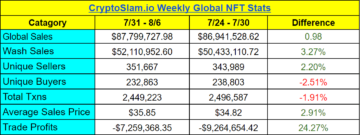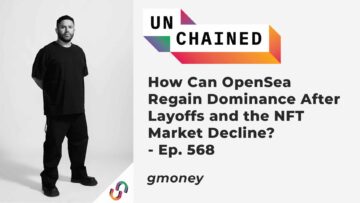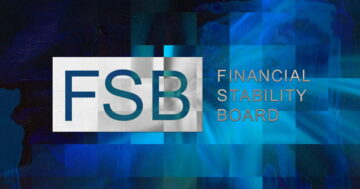
Mastercard and Binance will end their crypto card-related partnerships, four in number, by September 22, 2023.
The programs were offered in four countries: Argentina, Brazil, Colombia, and Bahrain.
The decision comes as the exchange faces regulatory scrutiny, with its CEO also on the authorities’ radar.
In an email to Reuters, a Mastercard representative revealed plans to terminate its partnership with Binance. The two powerhouse names, one a leading crypto exchange by trading volume and the other the second largest payment processing corporation in the world, run a crypto card program together.
Also Read: Grayscale faces litigation for GBTC mismanagement; same product it wants converted to spot BTC ETF.
Mastercard Binance sever ties for cards program
Mastercard and Binance entered a partnership around August 25, 2022, for debit card programs serving four countries: Argentina, Brazil, Colombia, and Bahrain. After a year of cooperation, tomorrow (August 25, 2023), the firms have decided to terminate the arrangement, with the deal set to expire on September 21, 2023.
Hello there,
The Binance Card will no longer be available to users in Latin America and the Middle East. The product, like most debit cards, has been utilized by Binance’s users to pay for basic daily expenses but in this case, the cards are funded with crypto assets. Only a tiny…
— Binance Customer Support (@BinanceHelpDesk) August 23, 2023
Before then, cardholders can still use it as usual, with its intended purpose being to make purchases and pay bills with cryptocurrencies. Notably, you must have a national identity document to merit as a cardholder.
The card is similar to other bank cards, with the only difference being that it is linked to a cryptocurrency wallet, unlike the traditional cards that are linked to a mobile banking application. As such, holders enjoy a simple means to crypto acquisition as it eliminates the need for fees while sparing the owner the hassle of navigating tiresome onboarding processes at exchanges. Other perks of card ownership include access to exclusive offers with specific merchants, with the privilege to transact locally and internationally without fees.
Notwithstanding, customers have only around 29 days left to enjoy these perks as the partnership is coming to its unfortunate end. While neither Binance nor Mastercard has explained the reason for the termination, it is easy to assume that it has something to do with the recent tussle between the exchange and US regulators.
It should be noted that Mastercard also has an ongoing partnership with other crypto firms like Gemini, which will not be affected by severed ties with Binance, but only goes to affirm speculation of the exchange’s conflict with the regulators.
Binance legal tussle with SEC and CFTC
The US Securities and Exchange Commission (SEC) filed charges against Binance Exchange and its CEO, Changpeng Zhao (CZ), on June 5, calling them out for alleged securities law violations. The regulator claimed that Binance Coin (BNB) and Binance USD (BUSD) were securities. With this, the SEC alleged that Binance.US, the exchange’s subsidiary in the US, and CZ offered these unregistered securities to the general public.
The regulator also claimed Binance allowed US citizens to operate on the primary platform, Binance.com, thereby violating rules as they were only allowed to use Binance.US. CEO CZ was also accused of commingling assets, diverting billions of dollars of customer funds to a third-party entity belonging to himself. He dismissed all these as FUD with his signature “4”.
4.
Our team is all standing by, ensuring systems are stable, including withdrawals, and deposits.
We will issue a response once we see the complaint. Haven’t seen it yet. Media gets the info before we do.
— CZ Binance (@cz_binance) June 5, 2023
The Commodity Futures Trading Commission (CFTC) is also pursuing a case with Binance, alleging in a March case that the exchange offered unregistered cryptocurrency derivatives products. The commission also claimed that Binance guided its US customers to avoid compliance controls using VPNs. As such, Binance was charged with violating laws around offering futures transactions and illegal off-exchange commodity options.
In its response, Binance challenged that the regulator did not have regulatory authority over spot trading in the US or overseas and, therefore, filed a motion to dismiss the charges, citing irrelevance.
Also Read: SEC v. Ripple: Attorneys leave SEC side, both groups add new lawyers
SEC vs Ripple lawsuit FAQs
It depends on the transaction, according to a court ruling released on July 14:
For institutional investors or over-the-counter sales, XRP is a security.
For retail investors who bought the token via programmatic sales on exchanges, on-demand liquidity services and other platforms, XRP is not a security.
The United States Securities & Exchange Commission (SEC) accused Ripple and its executives of raising more than $1.3 billion through an unregistered asset offering of the XRP token.
While the judge ruled that programmatic sales aren’t considered securities, sales of XRP tokens to institutional investors are indeed investment contracts. In this last case, Ripple did breach the US securities law and will need to keep litigating over the around $729 million it received under written contracts.
The ruling offers a partial win for both Ripple and the SEC, depending on what one looks at.
Ripple gets a big win over the fact that programmatic sales aren’t considered securities, and this could bode well for the broader crypto sector as most of the assets eyed by the SEC’s crackdown are handled by decentralized entities that sold their tokens mostly to retail investors via exchange platforms, experts say.
Still, the ruling doesn’t help much to answer the key question of what makes a digital asset a security, so it isn’t clear yet if this lawsuit will set precedent for other open cases that affect dozens of digital assets. Topics such as which is the right degree of decentralization to avoid the “security” label or where to draw the line between institutional and programmatic sales are likely to persist.
The SEC has stepped up its enforcement actions toward the blockchain and digital assets industry, filing charges against platforms such as Coinbase or Binance for allegedly violating the US Securities law. The SEC claims that the majority of crypto assets are securities and thus subject to strict regulation.
While defendants can use parts of Ripple’s ruling in their favor, the SEC can also find reasons in it to keep its current strategy of regulation by enforcement.
The court decision is a partial summary judgment. The ruling can be appealed once a final judgment is issued or if the judge allows it before then. The case is in a pretrial phase, in which both Ripple and the SEC still have the chance to settle.
#Mastercard #terminate #crypto #card #partnerships #Binance #exchange #faces #regulatory #scrutiny
- SEO Powered Content & PR Distribution. Get Amplified Today.
- PlatoData.Network Vertical Generative Ai. Empower Yourself. Access Here.
- PlatoAiStream. Web3 Intelligence. Knowledge Amplified. Access Here.
- PlatoESG. Automotive / EVs, Carbon, CleanTech, Energy, Environment, Solar, Waste Management. Access Here.
- PlatoHealth. Biotech and Clinical Trials Intelligence. Access Here.
- ChartPrime. Elevate your Trading Game with ChartPrime. Access Here.
- BlockOffsets. Modernizing Environmental Offset Ownership. Access Here.
- Source: https://cryptoinfonet.com/regulation/mastercard-to-terminate-four-crypto-card-partnerships-with-binance-as-exchange-faces-regulatory-scrutiny/
- :has
- :is
- :not
- :where
- $UP
- 14
- 2022
- 2023
- 22
- 23
- 25
- a
- access
- According
- accused
- acquisition
- actions
- add
- affect
- Affirm
- After
- against
- All
- alleged
- allegedly
- allowed
- allows
- also
- america
- an
- and
- answer
- Application
- ARE
- Argentina
- around
- arrangement
- AS
- asset
- Assets
- assume
- At
- AUGUST
- authority
- available
- avoid
- bahrain
- Bank
- bank cards
- Banking
- basic
- BE
- been
- before
- being
- between
- Big
- Billion
- billions
- Bills
- binance
- Binance Card
- Binance Coin
- Binance Coin (BNB)
- Binance exchange
- Binance USD (BUSD)
- BINANCE.US
- blockchain
- bnb
- both
- bought
- Brazil
- breach
- broader
- BTC
- BTC ETF
- BUSD
- but
- by
- calling
- CAN
- card
- cardholders
- Cards
- case
- cases
- ceo
- CFTC
- challenged
- Chance
- Changpeng
- Changpeng Zhao
- Changpeng Zhao (CZ)
- charged
- charges
- Citizens
- claimed
- claims
- clear
- Coin
- coinbase
- Colombia
- COM
- comes
- coming
- commission
- commodity
- complaint
- compliance
- conflict
- considered
- continue
- contracts
- controls
- converted
- cooperation
- CORPORATION
- could
- countries
- Court
- Crackdown
- crypto
- crypto acquisition
- Crypto Card
- crypto exchange
- crypto firms
- crypto sector
- crypto-assets
- cryptocurrencies
- cryptocurrency
- Cryptocurrency Wallet
- CryptoInfonet
- Current
- customer
- Customer Support
- Customers
- CZ
- daily
- Days
- deal
- Debit
- Debit Card
- Debit Cards
- Decentralization
- decentralized
- decided
- decision
- defendants
- Degree
- Depending
- depends
- deposits
- Derivatives
- DID
- difference
- digital
- Digital Asset
- Digital Assets
- Dismiss
- do
- document
- Doesn’t
- dollars
- dozens
- draw
- East
- easy
- eliminates
- end
- enforcement
- enjoy
- ensuring
- entered
- entities
- entity
- ETF
- Ether (ETH)
- exchange
- Exchange Commission
- Exchanges
- Exclusive
- executives
- expenses
- experts
- explained
- faces
- fact
- favor
- Fees
- filed
- Filing
- final
- Find
- firms
- For
- four
- FUD
- funded
- funds
- Futures
- Futures Trading
- GBTC
- Gemini
- General
- general public
- Goes
- Grayscale
- Group’s
- guided
- handled
- Have
- he
- help
- his
- holders
- HTTPS
- Identity
- if
- Illegal
- in
- include
- Including
- indeed
- industry
- info
- Institutional
- institutional investors
- intended
- internationally
- investment
- Investors
- issue
- Issued
- IT
- ITS
- judge
- July
- june
- Keep
- Key
- Label
- largest
- Last
- Latin
- latin america
- Law
- Laws
- lawsuit
- leading
- Leave
- left
- Legal
- like
- likely
- Line
- LINK
- linked
- Liquidity
- Litigation
- locally
- longer
- LOOKS
- Majority
- make
- MAKES
- March
- mastercard
- means
- Media
- Merchants
- Merit
- Middle
- Middle East
- million
- mismanagement
- Mobile
- Mobile banking
- more
- most
- mostly
- motion
- much
- must
- names
- National
- navigating
- Navigation
- Need
- Neither
- New
- no
- nor
- notably
- noted
- number
- of
- offered
- offering
- Offers
- on
- On-Demand
- On-Demand Liquidity
- Onboarding
- once
- ONE
- ongoing
- only
- open
- operate
- Options
- or
- Other
- out
- over
- over-the-counter
- overseas
- owner
- ownership
- Partnership
- partnerships
- parts
- Pay
- payment
- payment processing
- perks
- phase
- plans
- platform
- Platforms
- plato
- Plato Data Intelligence
- PlatoData
- Precedent
- primary
- privilege
- processes
- processing
- Product
- Products
- Program
- programmatic
- Programs
- public
- purchases
- purpose
- question
- radar
- raising
- Read
- Reading
- reason
- reasons
- received
- recent
- Regulation
- regulation by enforcement
- regulator
- Regulators
- regulatory
- released
- representative
- response
- retail
- Retail Investors
- Reuters
- Revealed
- right
- Ripple
- ripple lawsuit
- ruled
- rules
- ruling
- Run
- sales
- same
- say
- scrutiny
- SEC
- Second
- sector
- Securities
- Securities & Exchange Commission
- Securities and Exchange Commission
- security
- see
- seen
- September
- Services
- serving
- set
- settle
- should
- side
- signature
- similar
- Simple
- So
- sold
- something
- specific
- speculation
- Spot
- Spot Trading
- stable
- States
- Still
- Strategy
- strict
- subject
- subsidiary
- such
- SUMMARY
- support
- Systems
- team
- than
- that
- The
- the world
- their
- Them
- then
- There.
- thereby
- therefore
- These
- they
- third-party
- this
- Through
- Thus
- Ties
- to
- together
- token
- Tokens
- tomorrow
- Topics
- toward
- Trading
- trading volume
- traditional
- transact
- transaction
- Transactions
- two
- under
- unfortunate
- United
- United States
- unlike
- unregistered
- unregistered securities
- us
- US Regulators
- US securities law
- USD
- use
- users
- utilized
- via
- Violating
- Violations
- volume
- VPNs
- vs
- Wallet
- wants
- was
- we
- WELL
- were
- What
- which
- while
- WHO
- will
- win
- with
- Withdrawals
- without
- world
- written
- xrp
- xrp token
- year
- yet
- you
- zephyrnet
- Zhao











